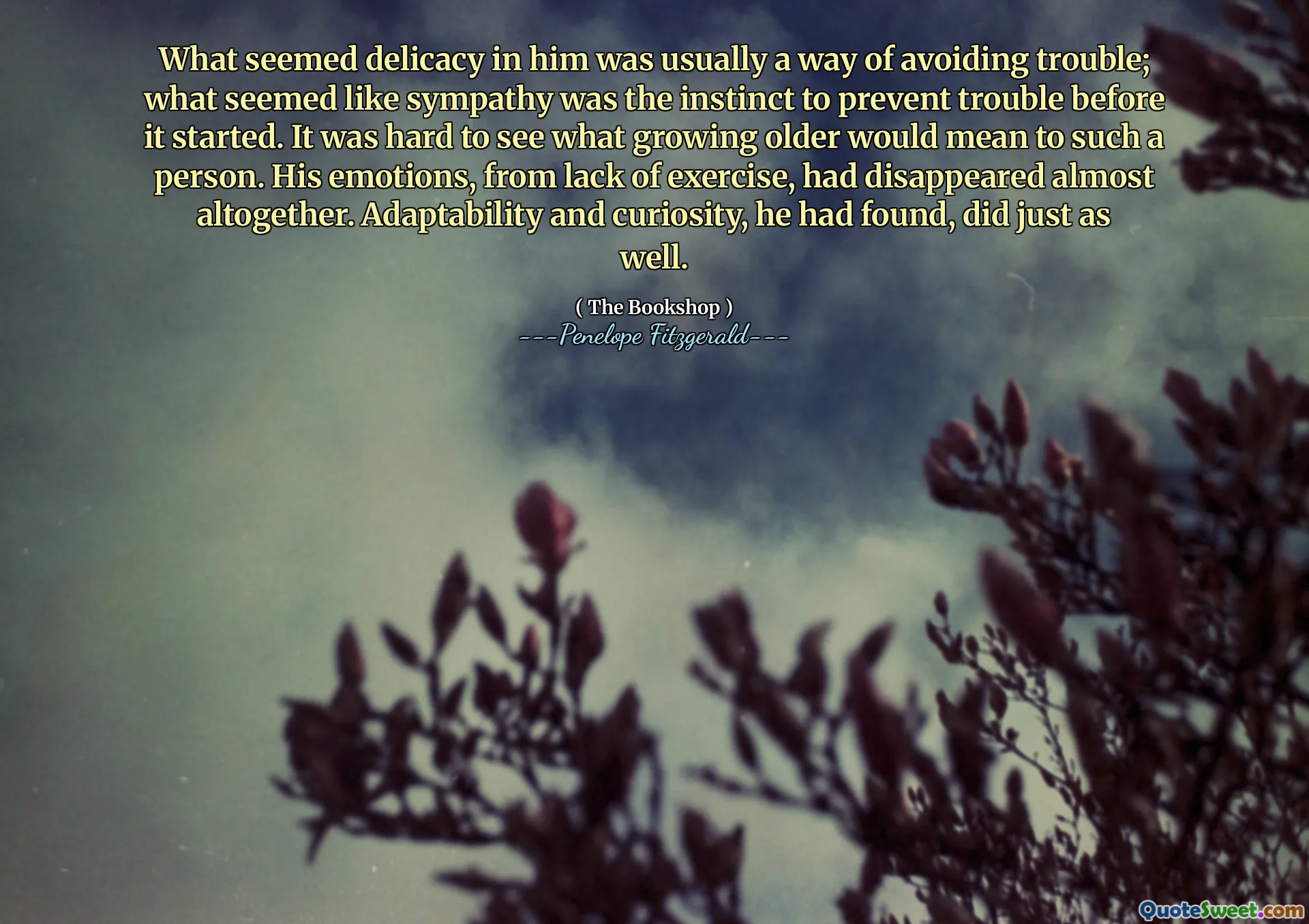
What seemed delicacy in him was usually a way of avoiding trouble; what seemed like sympathy was the instinct to prevent trouble before it started. It was hard to see what growing older would mean to such a person. His emotions, from lack of exercise, had disappeared almost altogether. Adaptability and curiosity, he had found, did just as well.
The character in Penelope Fitzgerald's "The Bookshop" presents a façade of delicacy and sympathy, which often serves as a mechanism to sidestep conflict rather than an authentic emotional response. His tendencies reflect a deeper instinct to avoid trouble before it arises, leading to a life where genuine emotions are stunted and feelings have become largely absent due to neglect. This raises questions about his future development as he ages.
As he navigates his existence, his adaptability and curiosity come to the forefront, suggesting that these traits have replaced traditional emotional engagement. The character's evolution over time remains uncertain, hinting at a life defined more by tactical avoidance than real emotional growth, leaving readers to ponder what true maturity would look like for him.






